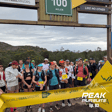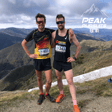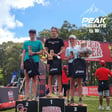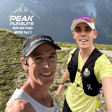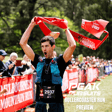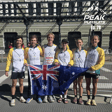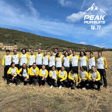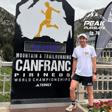
Kellie Angel Returns: Taking on WSER, Backing Yourself, and Why Consistency Wins
We’re thrilled to welcome Kellie Angel back to Peak Pursuits!
Since her first episode, Kellie has stepped things up in a big way — tackling the Western States Endurance Run, continually building her confidence on the trails, and learning how to train smarter, not just harder.
In this episode, we dive into what’s changed, what’s stayed the same, and the biggest lessons she’s picked up along the way — from her first time at a big international race to how she balances work, family, and a growing love of the sport.
We cover:
- What it really takes to prepare for a major event like WSER
- Kellie’s evolving mindset as she gains experience and confidence
- Tips for runners going from local races to international events
- How to stay consistent when life gets full
- The importance of community, curiosity, and backing yourself
- How to find a coach and how to become one
Kellie’s perspective is grounded, relatable, and incredibly valuable for anyone moving up in distance or chasing a big trail goal for the first time. If you’ve ever thought, “Could I actually do that?” — this one’s for you.
***Don’t forget, use code PPP at Bix’s website for 20% off Bix products, exclusive to PPP listeners!***
Thanks for tuning in to Peak Pursuits! Connect with us on Instagram @peakpursuits.pod to share your thoughts, questions, and trail stories. Until next time, keep hitting the trails and chasing those peak pursuits!
Follow Kellie: Instagram | Endurance Edge
Follow James: Instagram | Strava
Music from #Uppbeat (free for Creators!):https://uppbeat.io/t/mood-maze/trendsetter
License code: K08PMQ3RATCE215R

